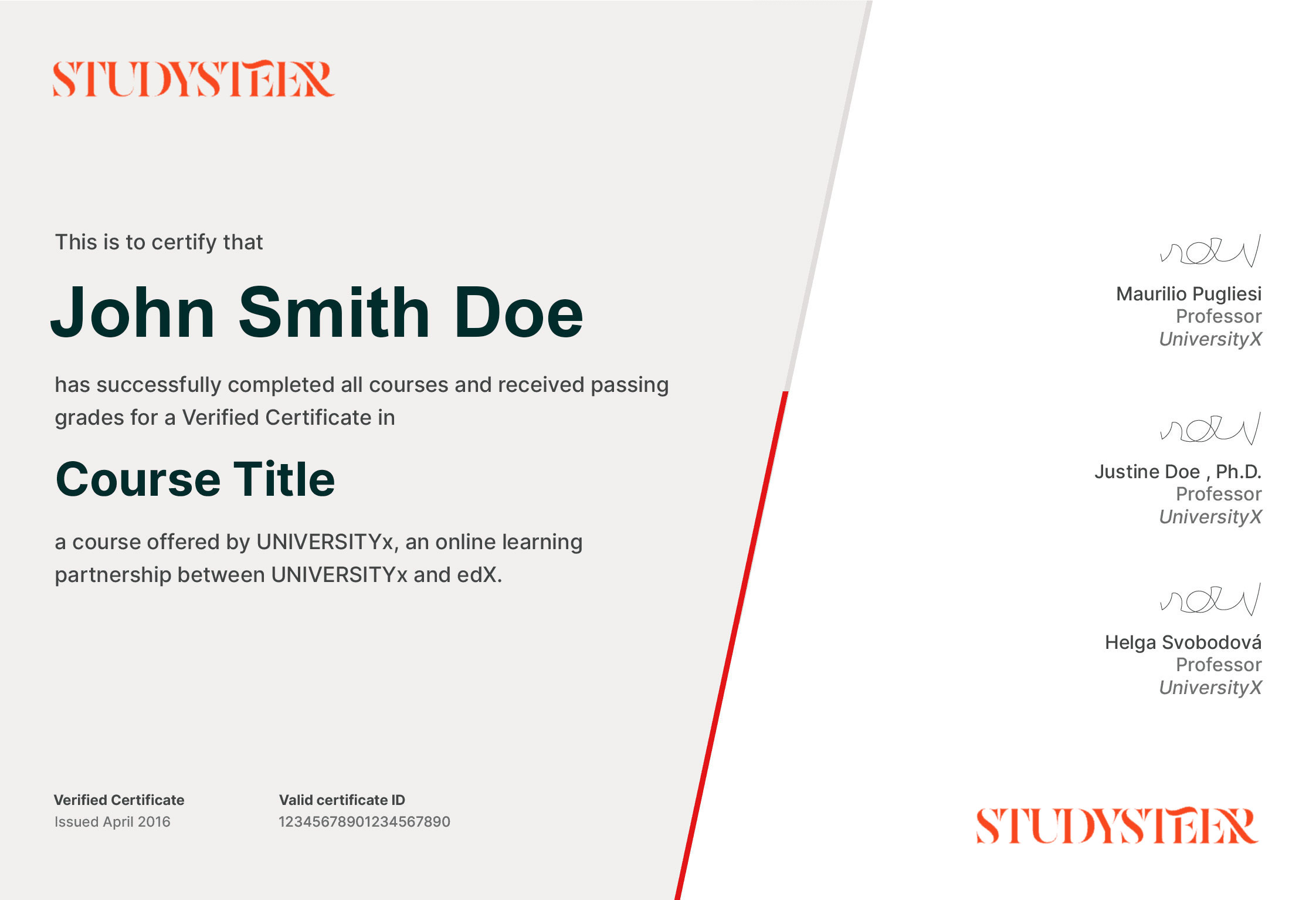Advanced Professional Certificate in Performance Measurement
The aim of this course is to provide participants with a comprehensive understanding of performance measurement concepts, metrics, and frameworks.
About the course
The aim of this course is to provide participants with a comprehensive understanding of performance measurement concepts, metrics, and frameworks. Participants will learn to analyze, evaluate, and apply performance measurement tools to improve organizational performance and make informed decisions.
Course details
This course will introduce participants to the fundamentals of performance measurement, including concepts, metrics, and frameworks. Participants will learn to identify, select, and apply performance measurement tools to improve organizational performance. The course will cover different performance measurement metrics and frameworks, including financial, operational, and balanced scorecards.
After the successful completion of this course, you will understand the following;
Financial Performance and Economic Models:
- Calculate and interpret common financial ratios.
- Analyze a business's financial statements.
- Evaluate a company's financial performance using market-based measures.
- Compare and contrast the advantages and disadvantages of using accounting and market-based measures for financial performance analysis.
- Identify trends and patterns in a business's financial performance over time.
- Interpret financial performance data in the context of industry benchmarks and competitors.
- Apply critical thinking skills to assess the reliability and validity of financial performance data.
- Synthesize the impact of external factors, such as economic conditions and regulatory environment, on financial performance analysis.
- Define and explain the concept of economic value added EVA.
- Calculate EVA using company financial data.
- Interpret EVA results to evaluate a company's financial performance.
- Compare EVA results to other financial performance measures, such as return on investment ROI and return on equity ROE.
- Evaluate the impact of EVA on a company's financial decision making, such as investment and financing decisions.
Operational Performance and Customer Satisfaction:
- Define and explain the concept of operational performance.
- Identify and define key drivers of operational performance, including quality, dependability, speed, cost, and flexibility.
- Develop and implement metrics to track and measure each driver of operational performance.
- Analyze and interpret operational performance data to inform decision making and continuous improvement initiatives.
- Evaluate the relationships between different drivers of operational performance and the impact on overall performance.
- Apply best practices for data collection, storage, and analysis in operational performance measurement.
- Synthesize the impact of technology and data analytics on operational performance measurement and decision making.
- Evaluate the trade-offs between operational performance drivers, such as cost and quality, in decision making.
- Apply critical thinking skills to assess the validity and reliability of operational performance data.
Profitability and Intellectual Capital:
- Understand the principles of activity-based costing and its application to customer profitability analysis.
- Analyze customer data to identify cost drivers and calculate customer profitability.
- Calculate customer lifetime value using company data.
- Interpret customer profitability analysis results and make recommendations for improvement.
- Develop strategies to maximize customer profitability.
- Define and explain the concepts of customer profitability analysis and customer lifetime value.
- Apply activity-based costing to allocate costs to individual customers and calculate customer profitability.
- Calculate customer lifetime value using company data, including customer acquisition cost and expected customer lifespan.
- Evaluate the impact of customer profitability analysis on sales and marketing strategies, customer retention, and customer relationship management.
- Synthesize the relationship between customer profitability and overall organizational profitability.
- Analyze customer data to identify trends and patterns in customer behaviour and performance.
- Evaluate the trade-offs between serving profitable and unprofitable customers in decision-making.
Performance Measurement Concepts and Framework:
- Definition and explanation of performance measurement metrics and frameworks
- Different performance measurement metrics and frameworks, including financial, operational, and balanced scorecards
- Relationships between different performance measurement metrics and frameworks and their impact on decision making
- Evaluation of the impact of performance measurement metrics and frameworks on organizational culture, employee motivation, and performance improvement
- Trade-offs between different performance measurement metrics and frameworks in decision making
- Best practices for data collection, storage, and analysis in performance measurement metric and framework selection
- Impact of technology and data analytics on performance measurement metric and framework selection and Implementation
- Purpose and components of the Balanced Scorecard, Performance Prism, SMART Pyramid, and the European Foundation for Quality Management EFQM model
Accreditation
All of our courses are accredited by the relevant partners and awarding bodies. Please refer to our information in about us for more details.Entry requirement
There are no strict entry requirements for this course. Work experience will be added advantage to understanding the content of the course.The certificate is designed to enhance the learner's knowledge in the field. This certificate is for everyone eager to know more and get updated on current ideas in their respective field. We recommend this certificate for the following audience.
- Managers and supervisors
- Business owners and entrepreneurs
- Financial analysts and accountants
- Operations managers
- Human resource professionals
- Data analysts and data scientists
- Quality control professionals
- Project managers
- Consultants
Sample Certificate

Boost your career and your talents
With a validated certificate that demonstrates your learning, wow your employer.
Take up a challenge
All of us occasionally need an additional push. You stay motivated by working for a credential.
Let the world know about it
Using the special URL we give you, you may safely distribute your validated certificate to others.
Get started
Enhance your skills in leading online learning initiatives.
Tuition:
RUB 14,596
RUB 26,272
-
Access to this course.
-
Access to library.
-
Tests to boost your learning.
-
Digital certificate when eligible.
-
Learn at your own pace
How learners like you are achieving their goals
Participants in our courses don’t just learn new skills, they enjoy the experience too.
Zainab P.
EgyptExecutive Education
A smart way to enhance my knowledge within a short period of time, the course is very productive and beneficial for me...so grateful that i completed successfully...i would recommend my friends and family about the course.
Andrew S.
United StatesExecutive Education
Truly enjoyed the Strategic Management and Leadership Level 7 course and it provided me with a clear insight and helped me in my daily work as Plant Manager.
Richard T.
ScotlandExecutive Education
The modules were well structured, and gave me the knowledge to make sound decisions that maximize performance.
Rachel O.
NigeriaExecutive Education
I have learned a lot and gain experienced in this course. At first, I did not have confidence when standing front of audience but now, it is a different story.
Other related courses
Advanced Professional Certificate in Performance Measurement
The aim of this course is to provide participants with a comprehensive understanding of performance measurement concepts, metrics, and frameworks.
How a Professional Certificate Works
Upskill, reskill or pursue a passion with short courses across every subject, whether you’re a beginner or already an expert.

Find the Right Program For Your Career
Professional Certificate programs are offered in a variety of in-demand subjects to help you get ahead.

Learn & Gain Expertise at Your Own Pace
On your computer, tablet or phone, online courses make learning flexible to fit your busy life.

Earn a Valuable Credential
Showcase your key skills and valuable knowledge.

Stand Out in Your Field
Use the knowledge and skills you have gained to drive impact at work and grow your career.




